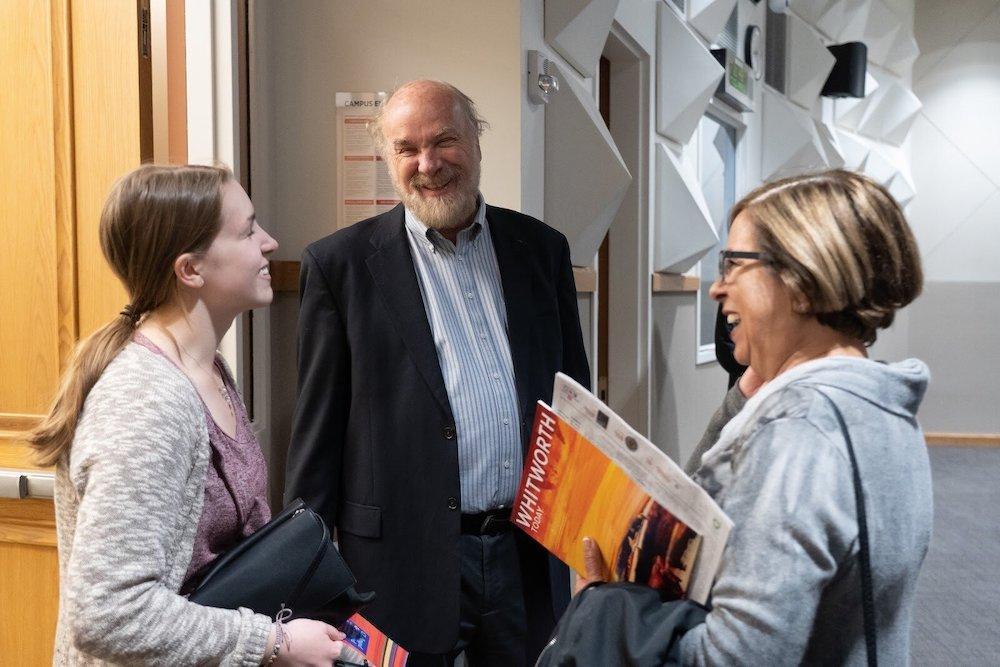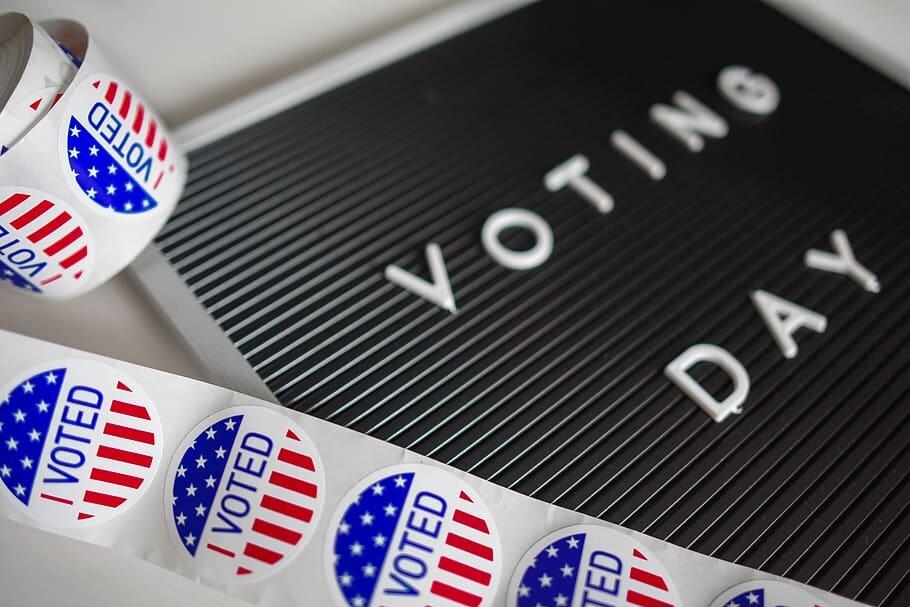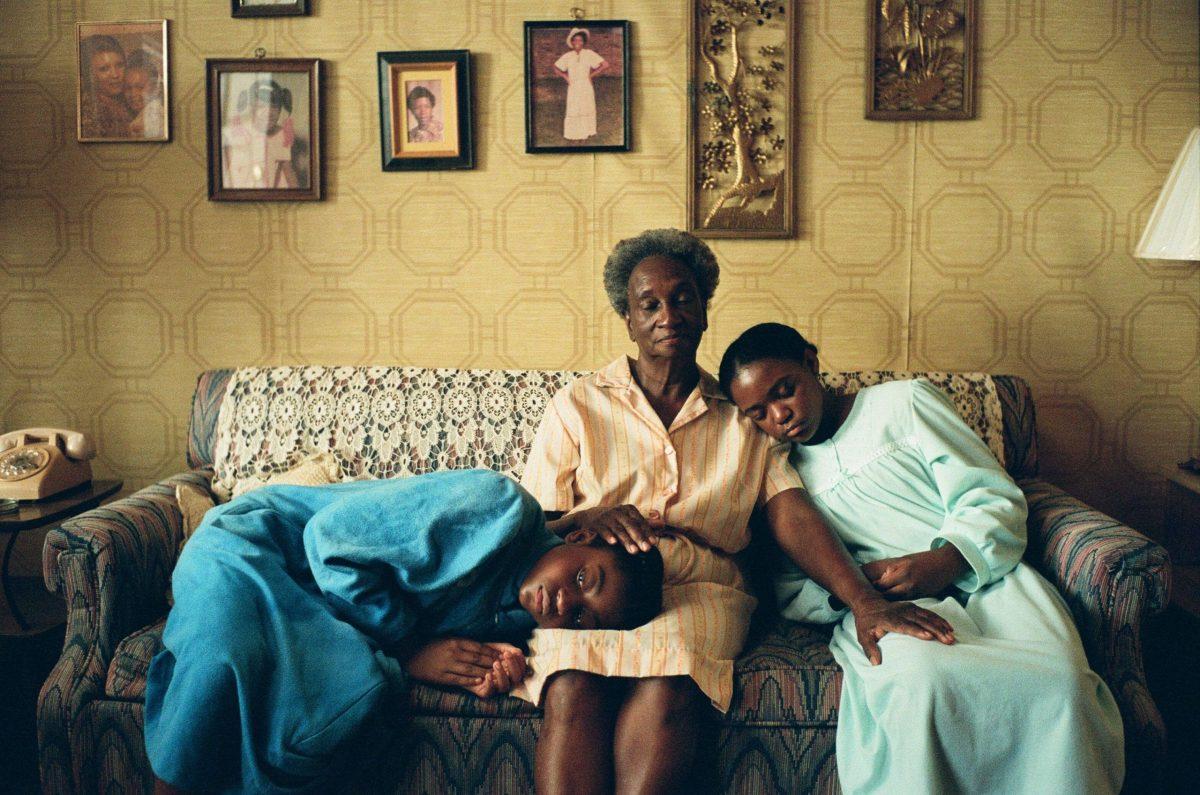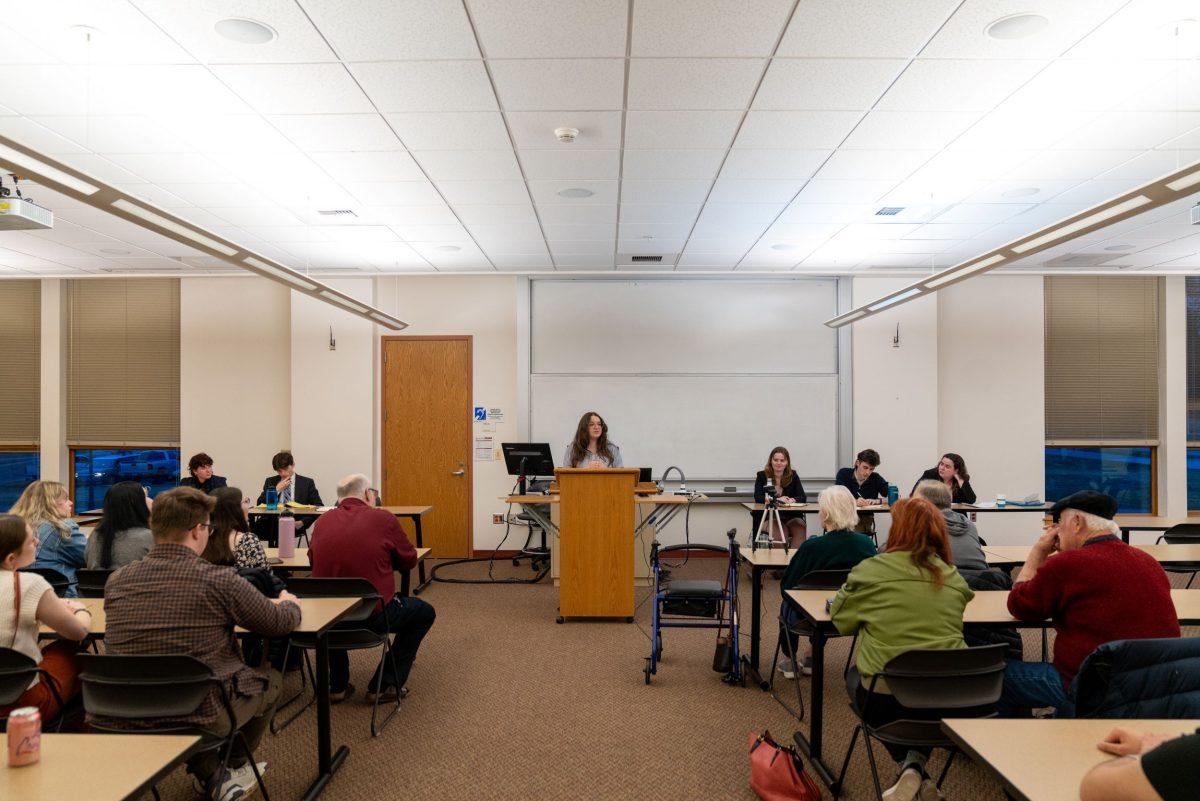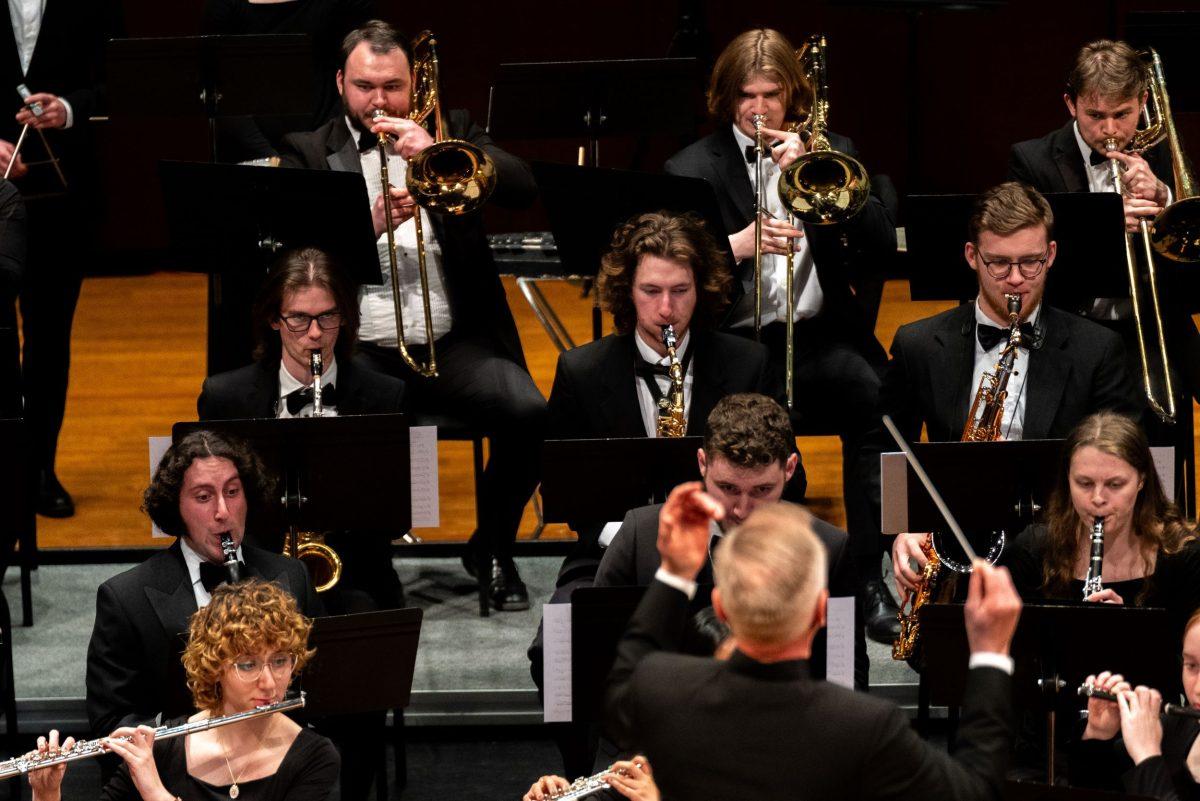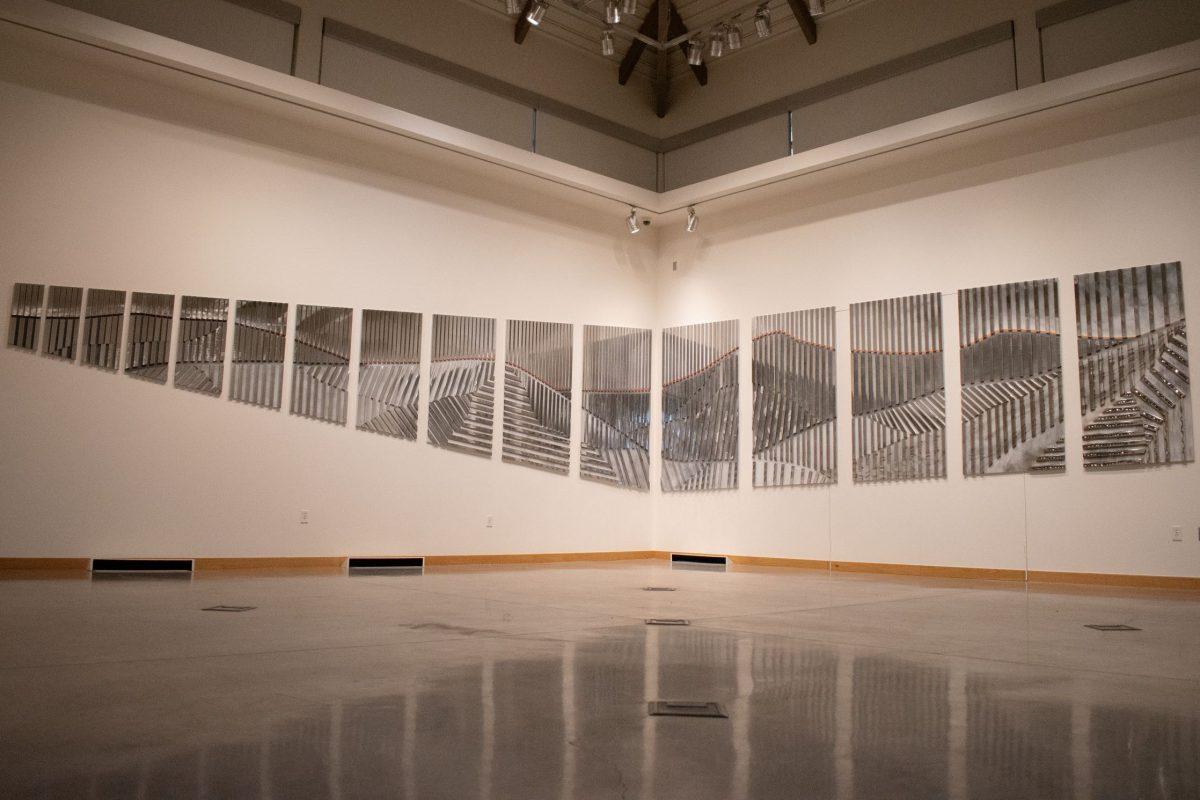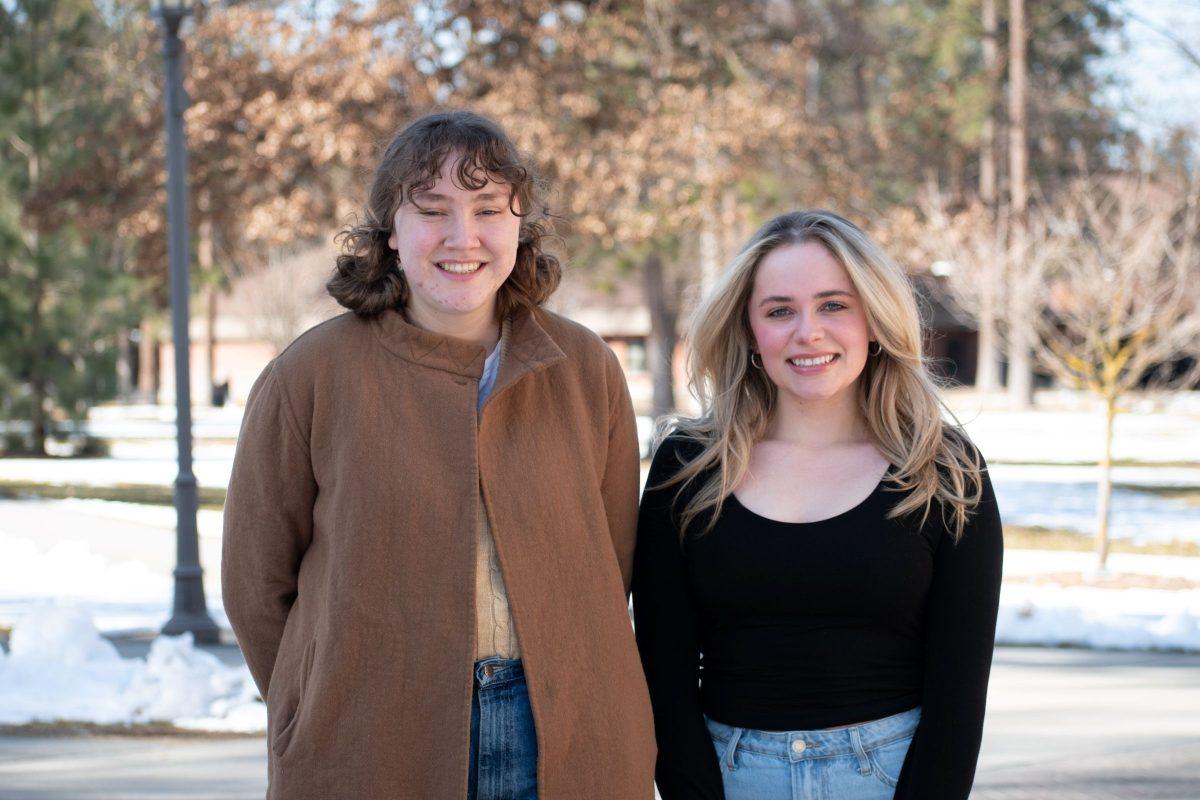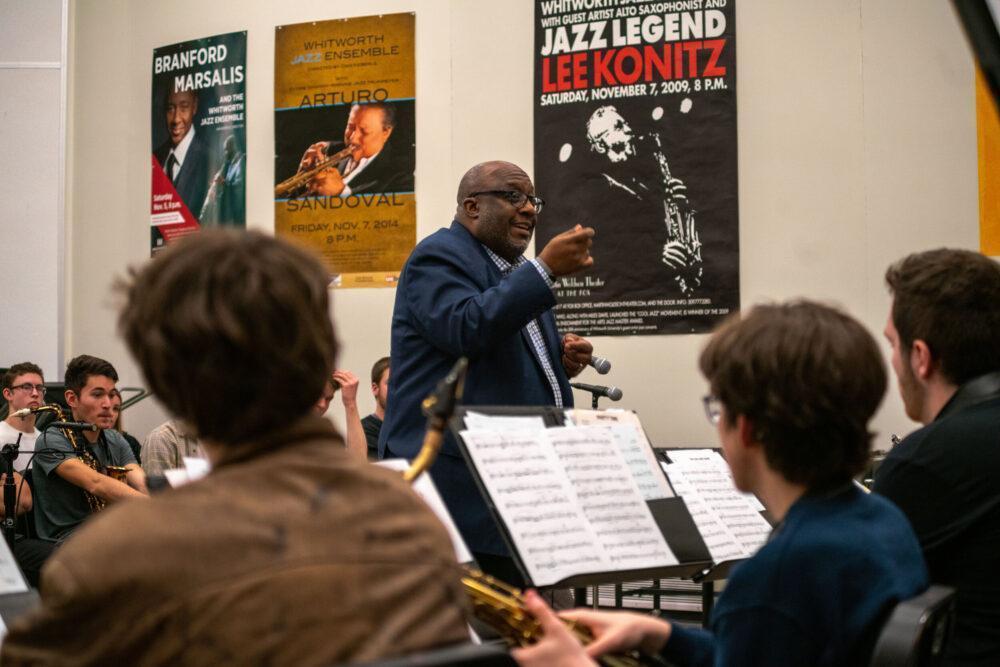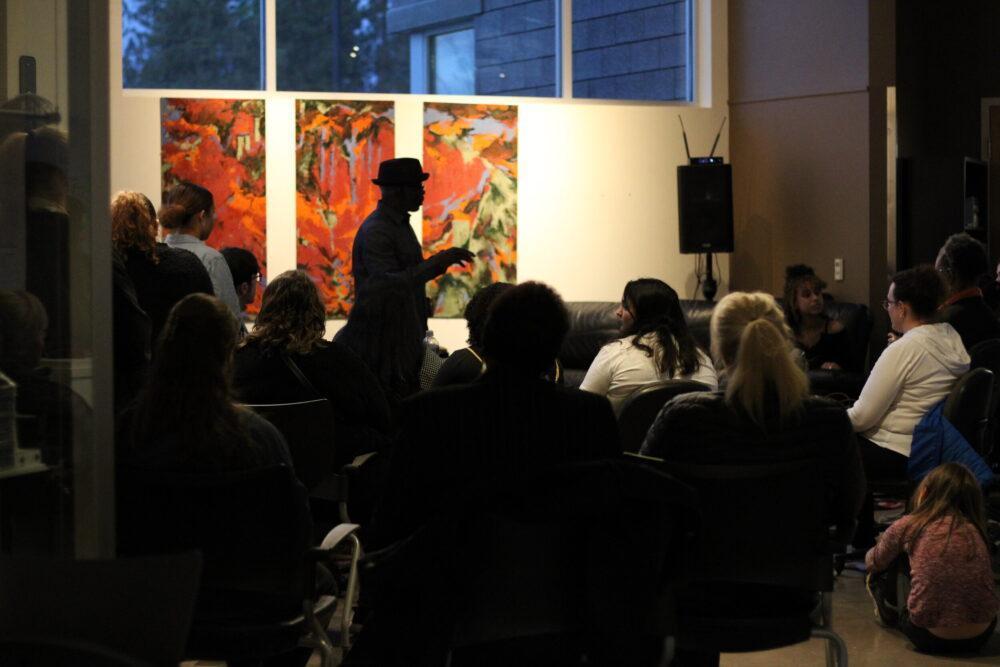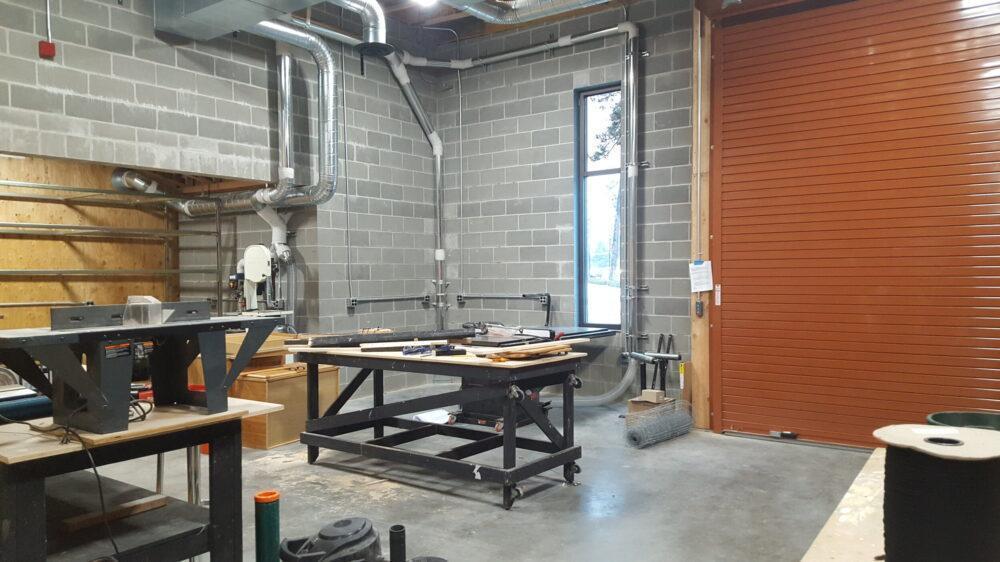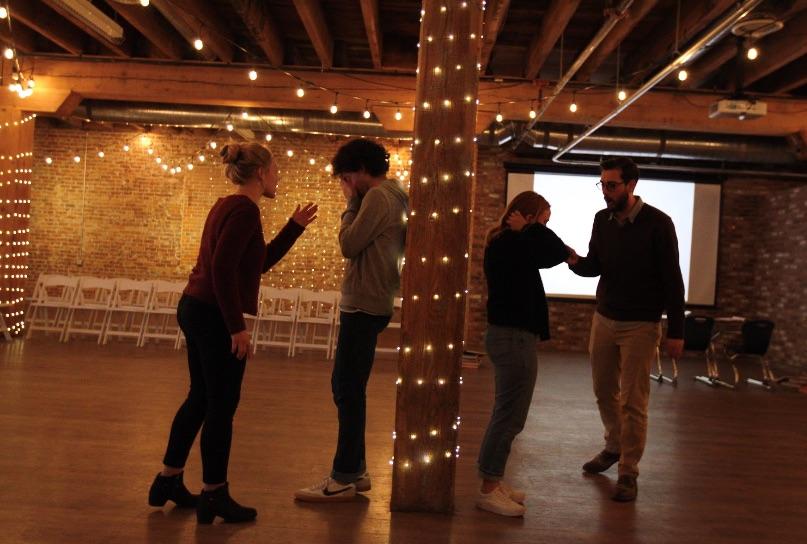
The room is a stage.
It is a wide, mostly wooden room. String lights wrap around the pillars and illuminate in a warm, yellow tint. There are stacks of dozens of textbooks, pencils and lined paper in front of a few of the pillars. Four white cloths wrap around the pillars with words like, “happy,” “tight knit,” “heart,” and “haw tee,” written in black marker.
The foldable chairs for the audience rest in two-line clumps forming corners around the stage. In the middle of the space are four desks, each in a quadrant of the square of seats. Someone is sitting at each desk, writing and rewriting the same sentences in their composition notebook: “Don’t just say this has no impact on me. It’s still my home.”
“What do I do? What did I do?”
“There are no blueprints.”
“How do I live with them? How do I live with me? How do we live together?”
Audience members walk around the space and watch, some with furrowed brows and squinted eyes as the actors write. The audience members hug friends, talk to people around them and eventually settle down. One woman is crying before the play has begun. There aren’t enough seats set up for everyone, so some stay standing while others sit.
Two projectors display a Facebook post from the Freeman School District from Sep. 13, 2017.
Peyton Smetana’s senior project play, “5 Degrees of Separation: A Verbatim Theatre Piece on Processing,” took place at the McGinnity Room in downtown Spokane. It is a compilation of the precise words spoken by Freeman community members who Smetana interviewed about, “their journey to understanding, processing, and healing after the Freeman High School shooting,” according to the play program.
Smetana created the script based on conversations with students and teachers who were present during the shooting as well as parents connected to the school. The play pictured how lots of people were affected by the Freeman High School shooting in different ways, Smetana said.
“It’s kind of about telling people that it’s okay,” junior Trent Goodwin said. He was part of the four-person cast and said he learned that it’s normal to feel sad and to struggle with grief, hoping the audience understood that.
Brock Baratt and Trevor Paternoster knew Smetana through Freeman High School. They said the play felt personal for both of them.
“I feel like if you were (at Freeman), you could kind of get what they were saying,” Baratt, a current senior at the high school, said. He said experiencing a shooting is something people should be able to understand, but some people don’t.
Paternoster graduated last year. He said the play let the audience almost experience the event themselves and know the process afterward.
“5 Degrees of Separation” was organized into 13 vignettes focused on individual and communal experiences. Movement was a big part of the show, and the scenes transitioned through the actors’ movement sequences. The final sequences were “bits and pieces” of the exercises the actors created on their own during their first rehearsal, Smetana said.
Junior Katie Ludlam, an actress in the play, said the play is about how people move on from pain in a world that doesn’t always validate feelings. She said, “reading the script, it was heavy,” because it described the stages of grief and processing.
When the play ended, there was silence—just the hum of the heater and quiet sound of breathing. At least ten seconds passed before there was an uproar of claps that echoed throughout the room.
“The space asked more of us,” Goodwin said. Because of the big area, wooden floors and full audience, the actors had to be louder and work with the space, he said.
Goodwin said the final dress rehearsal (the night before) was the cast’s first time at the McGinnity Room. They only rehearsed in the building twice before the show. The other rehearsals took place at Tacoma Hall, four to five nights a week for three weeks.
The actors were equal participants in making the play, Smetana said. He said rehearsals were “egalitarian” because the actors and him came with new ideas, tested them out and made them better, together.
“To those who were affected by the shooting. To those who felt that their experience didn’t matter. To those who felt their feelings were not valid,” Smetana said in a Facebook post. “This is for you.”

